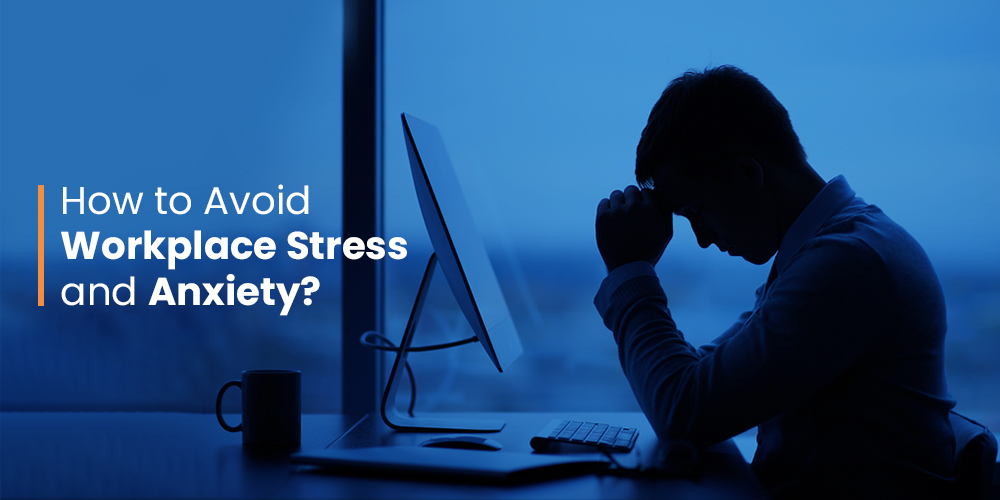In the modern workplace, stress and anxiety are inevitable. Certain factors at work contribute to an increase in stress and anxiety that can make life and work imbalanced when not identified and coped with. Stress and anxiety caused due to a workplace can have a significant impact on the quality of work and productivity, besides harming one’s physical and mental well-being.
Causes Of Stress and Anxiety In The Workplace
Some of the common sources of stress at work include
- Excessive work
- Low salaries
- Meagre opportunities for growth and development
- Work that isn’t challenging or engaging
- Not being able to make work-related decisions
- Lack of support from colleagues and management
- Unclear job expectations
- Unnecessary conflicts
Anxiety is fear, dread, and worry that occurs as a result of stress, and when not occasional, the chances of anxiety becoming a disorder is not low. Various factors at the workplace like deadlines, meetings, managing faculty and work simultaneously, dealing with impromptu situations, public speaking, office parties, lunches, and more contribute to an anxiety disorder that requires immediate attention and solution.
Unfortunately, living with stress and anxiety has become an overlooked norm and the toll it takes on a person’s physical, mental, emotional, social, and spiritual well-being remains undebated. A well-balanced work-life balance is the key to a happy and peaceful life and here are a few things that one can do to cope with stress and anxiety at the workplace.
6 Ways To Manage Stress In The Workplace
Developing Healthy Lifestyle Habits:
Certain foods, exercise, yoga, and meditation can bring major lifestyle changes at the physical as well as the mental & emotional levels. Reading a novel or a comic, attending concerts, playing games with friends and family, minimising screen time, new hobbies, reduced screen time, and quality sleep can make one stress-free.
Setting Boundaries at Work:
Managing office work at home is not wise and boundaries like not attending calls after office hours, not checking emails during dinner, not doing the work of other colleagues, and not taking extra work after office hours can predominantly reduce the conflict between work and personal life.
Relax and Recharge:
Take a break in between work and make plans for small trips or mini-vacations that host a mix of adventures and experiences that keeps the mind and heart fulfilled and peaceful. Develop a relaxing activity other than work and focus on it to apply it in many different aspects of life.
Maintain a Journal:
Keep a record of your thoughts, feelings, emotions, information about a particular circumstance or an environment, and how you reacted to a specific situation or setting to observe your behavioural pattern and change them accordingly.
Seek Support from Management:
Since productivity is linked to overall health, the management can be sought to organize wellness programs and other leisurely activities that can boost employee performance, besides improving workplace ambience.
Take a Therapy Session:
Sometimes, talking to someone outside your circle would do all the magic. Seeking the help of a psychologist can help you manage stress and overcome unhealthy behaviour.
Conclusion:
Stress and anxiety come uninvited but trying to repress them would cost one physical and mental issue beyond imagination. Hence, it is always wise and safe to keep a check on one’s body anywhere and at any time.
Here are our other blogs that could help you deal with fear and depression, https://www.trivitron.com/blog/fear-of-failure-and-how-to-overcome-it/
https://www.trivitron.com/blog/navigating-through-depression-and-understanding-it-in-details/

